- Free shipping on every order
- Same day dispatch
- Price beat guarantee
Menu
Blog Sustainability & Our Company
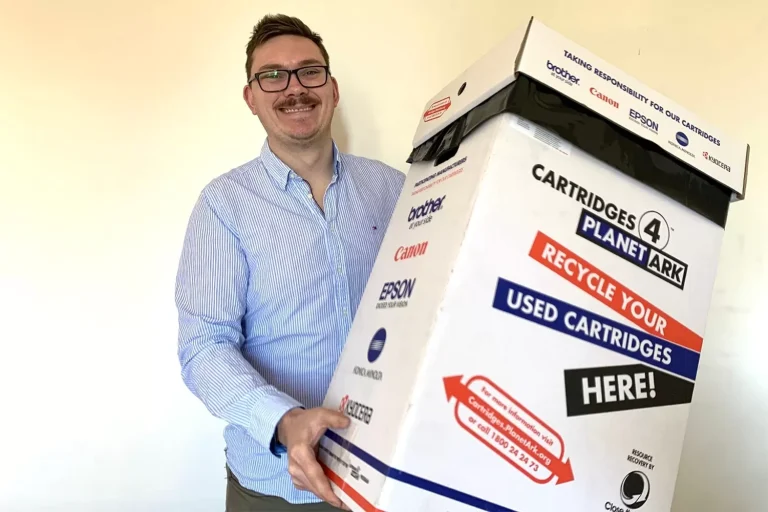
When Ben and I came up with the dream of The Wristband Co., we knew that we had to follow our vision from day one and stay true to our beliefs. One thing we were absolutely in agreement about was that we wanted to make a difference. We wanted to stand for something in our community.
You might already be aware of our wristband donation programme, where we assist events that are raising money for fantastic causes and people. However, we have been quieter about our other passion; operating as sustainably as possible and working together with our team and customers to help us along this path.
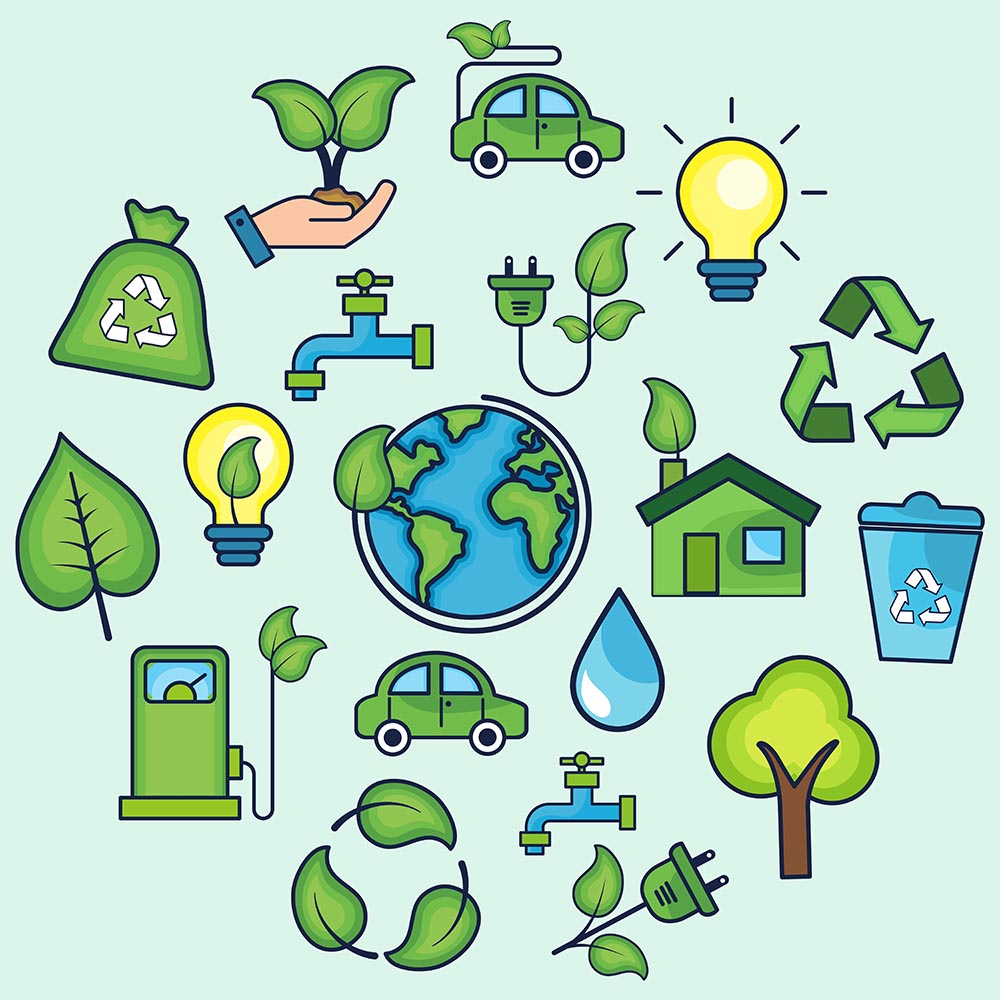
Our genuine passion for operating a sustainable and responsible business is one of the big reasons we love Tyvek, a material that is 100% recyclable. You might think that paper would be a more suitable material to manufacturer our wristbands from, but in all honesty, paper + wristbands = a mistake! The problem being the paper’s durability or lack thereof. Paper wristbands could not last through an entire event without tearing or falling to pieces, which is a problem for events needing secure wristbands.
Tyvek is a material that both Ben and I were familiar with from our professional backgrounds before setting up The Wristband Co. So, we knew that this material would ensure high quality, durable and waterproof wristbands that had a reduced footprint compared to other products or materials on the market.
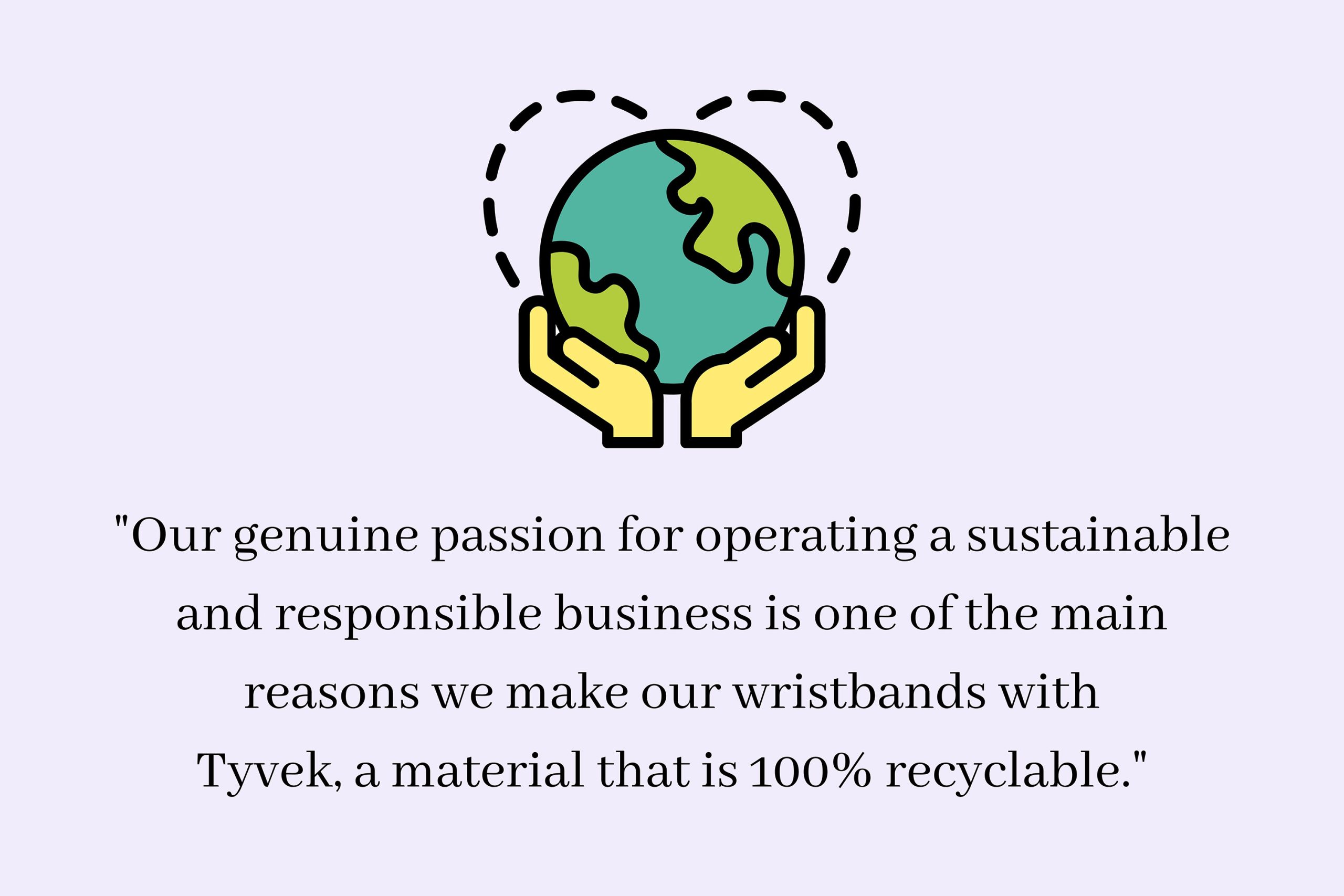
As well as using recyclable Tyvek for our wristbands, we knew we had to take a good look at how our entire operation functioned. How did we run our office and interact with our team members and customers? How do we source and deliver our wristbands to events? So many questions with an often overwhelming amount of answers.
When I started writing this blog, I tried to take steps towards a more sustainable way of living – both in my personal life and through The Wristband Co. Still, I was overwhelmed by the amount of information available and how to apply it to my home and work life? For me, mixed into this struggle is also the feeling of shame: guilt that I’m not doing enough; shame that I don’t understand it all immediately.
Guilt is a big reason why so many people within our events and hospitality industries choose to stay quiet about their environmental and sustainability policies—the fear of being shamed for doing the wrong thing or not doing enough. Operating sustainably is not obvious and does not always come easily to a lot of people. As a result, many of our learned behaviours and habits have to be unlearnt: things like using plastic straws, buying single-use plastic water bottles and takeout coffees rather than taking a reusable option to the store.
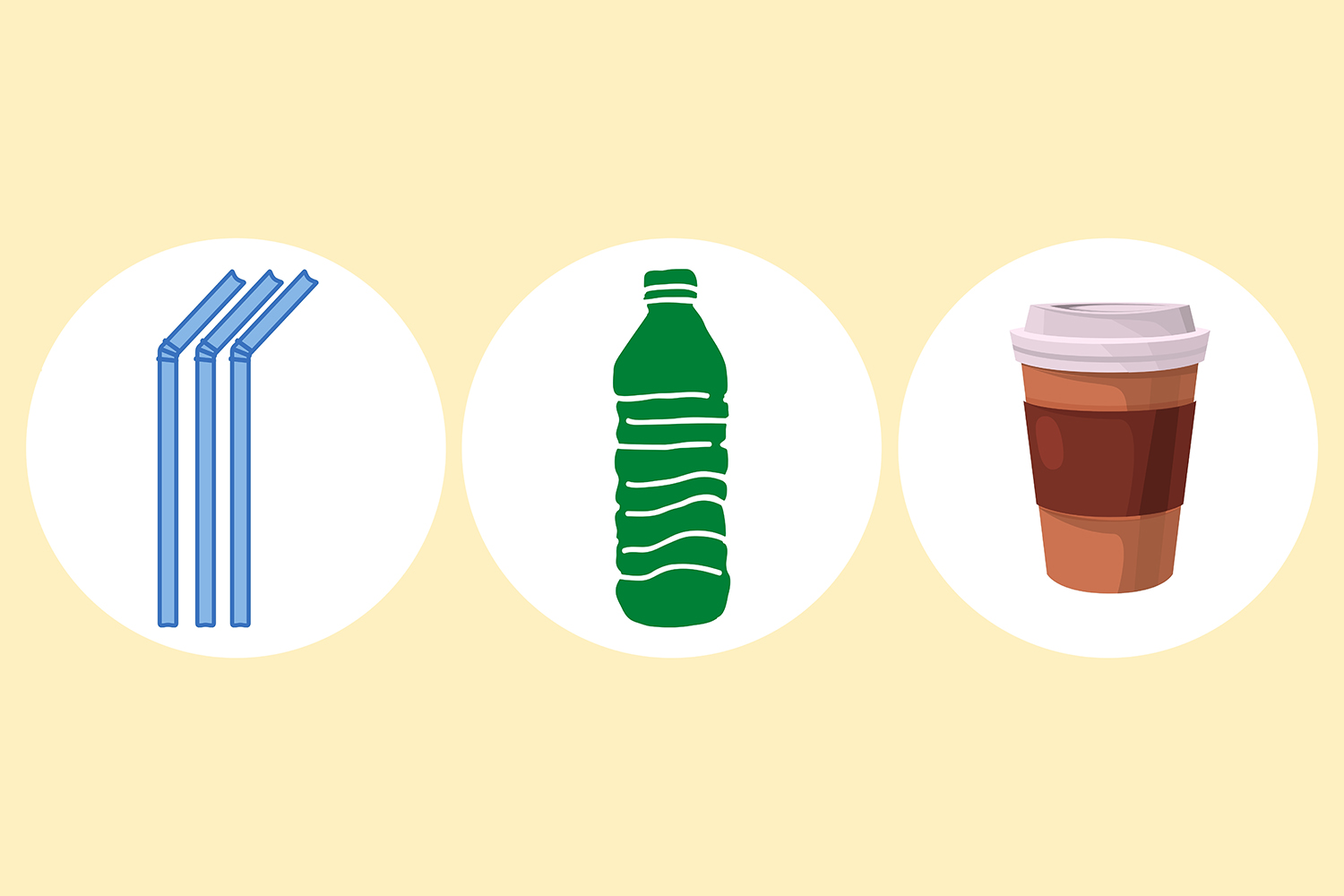
This idea of fear and shame was so sad to me, and it made me realise that it is only with open, honest conversations that we can educate ourselves and those around us. I want The Wristband Co. to be part of that judgement-free community that helps one another learn how to move forward in an environmentally solid and sustainable fashion.
With this new desire to educate myself and those around me, I set about learning from my community: from listening to those around me that knew more than I did. By taking the often overwhelming concepts and jargon of CO2 footprints, carbon-neutral, zero-waste, I have learnt to break them down into steps that I can apply to my daily life.
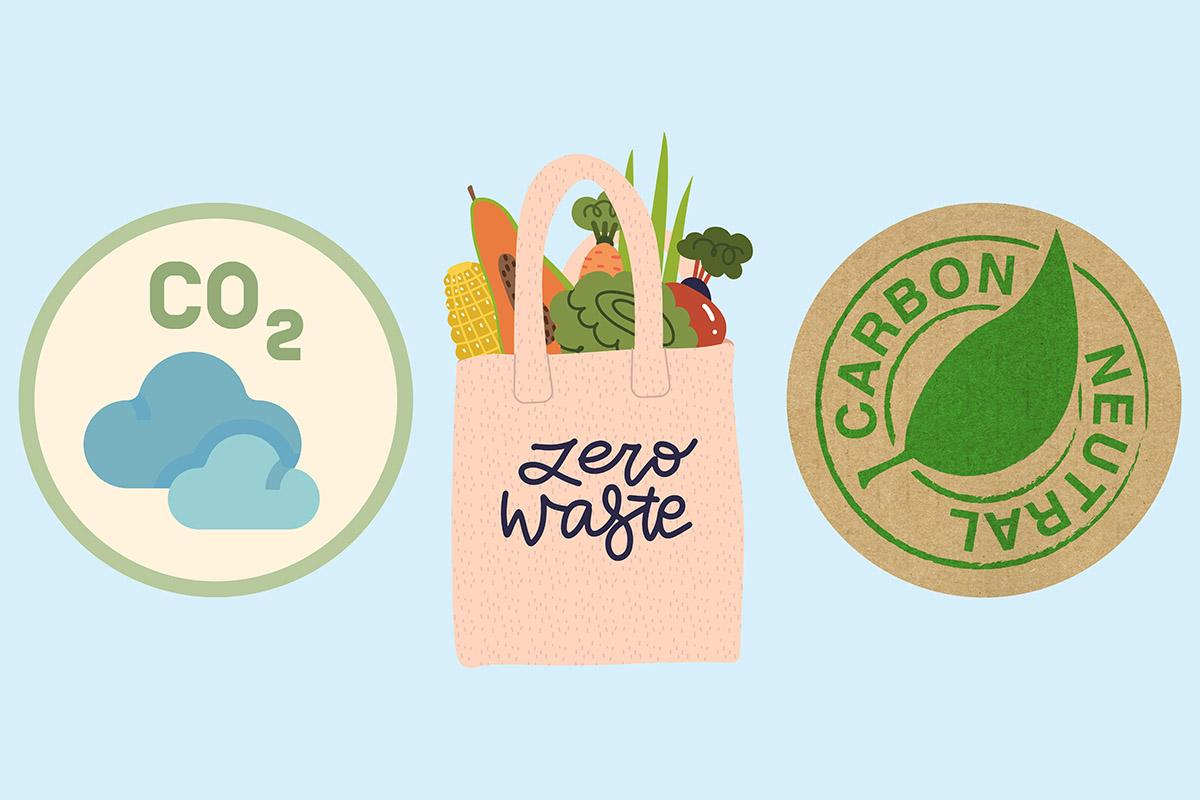
The Australian Government prepared the 2018 National Waste Policy to set out some clear objectives on how we can all begin to work together to reduce our waste production and become more sustainable. The main point of education for us was reducing our waste rather than simply filing the recycle bin. So we have looked at the policy framework and tried to apply it to how we work as a team and have created some core steps for The Wristband Co’s sustainable path.
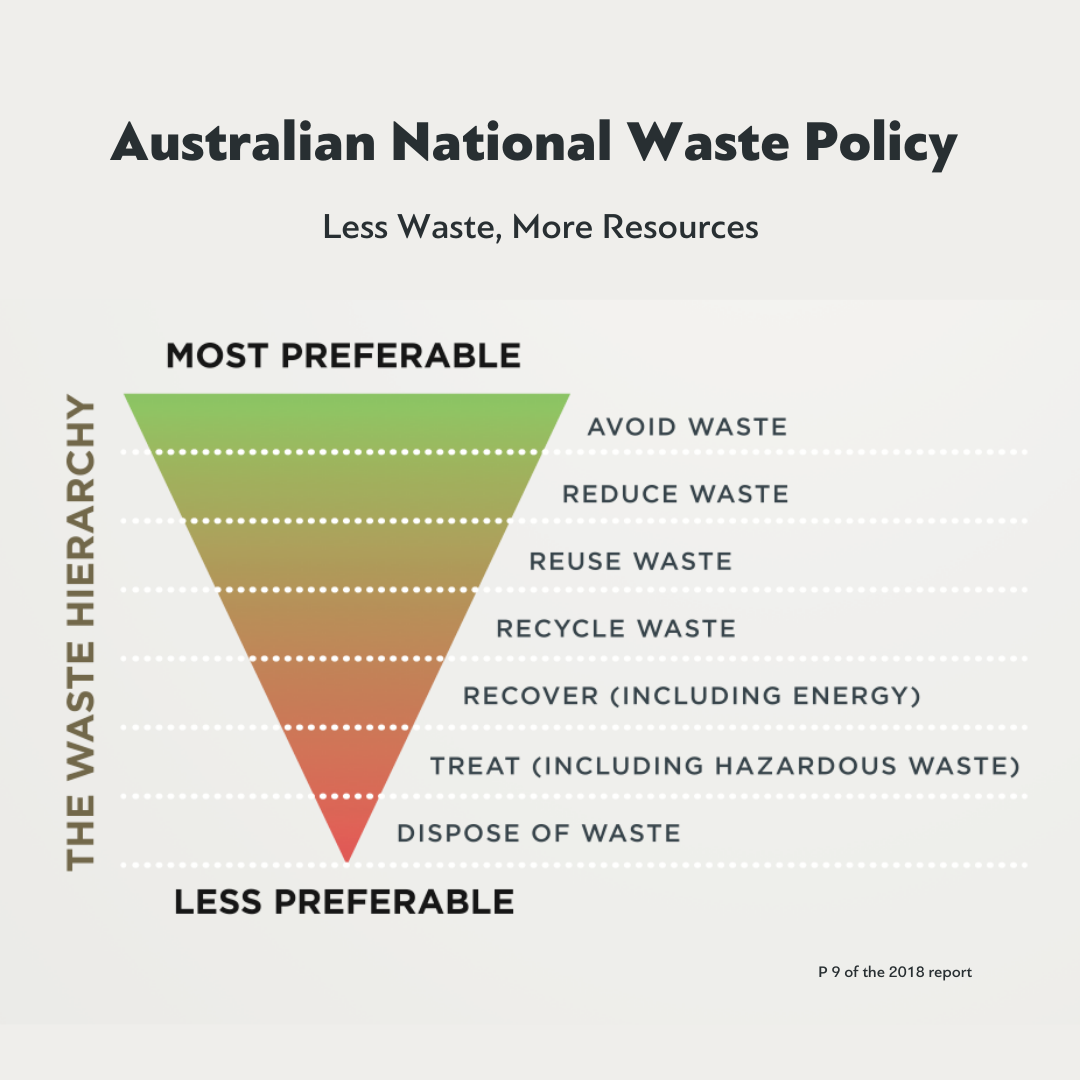
The first step on the journey is to stop accepting the ‘norm’ and to refuse services, products, equipment etc., if they cannot be provided sustainably. When sourcing a new item, we have to question whether we need it or have we got something in the office that could be repurposed into filling this need? For The Wristband Co.’s first step within the office, we asked ourselves, why are we buying branded packaging boxes? Whilst we love having our branding on packaging and containers, we love the environment more!
We asked ourselves, do we need these boxes? The short answer was ‘no’. We stopped buying new packaging and started keeping any boxes we received. We then reached out to our team, friends, customers and community, who now all send us their leftover boxes that would otherwise head straight to the recycling.
So now we send our wristbands out in all sorts of different packaging and containers. From the response and feedback we have received, it seems that our customers and team love this idea of the environment over branding too.
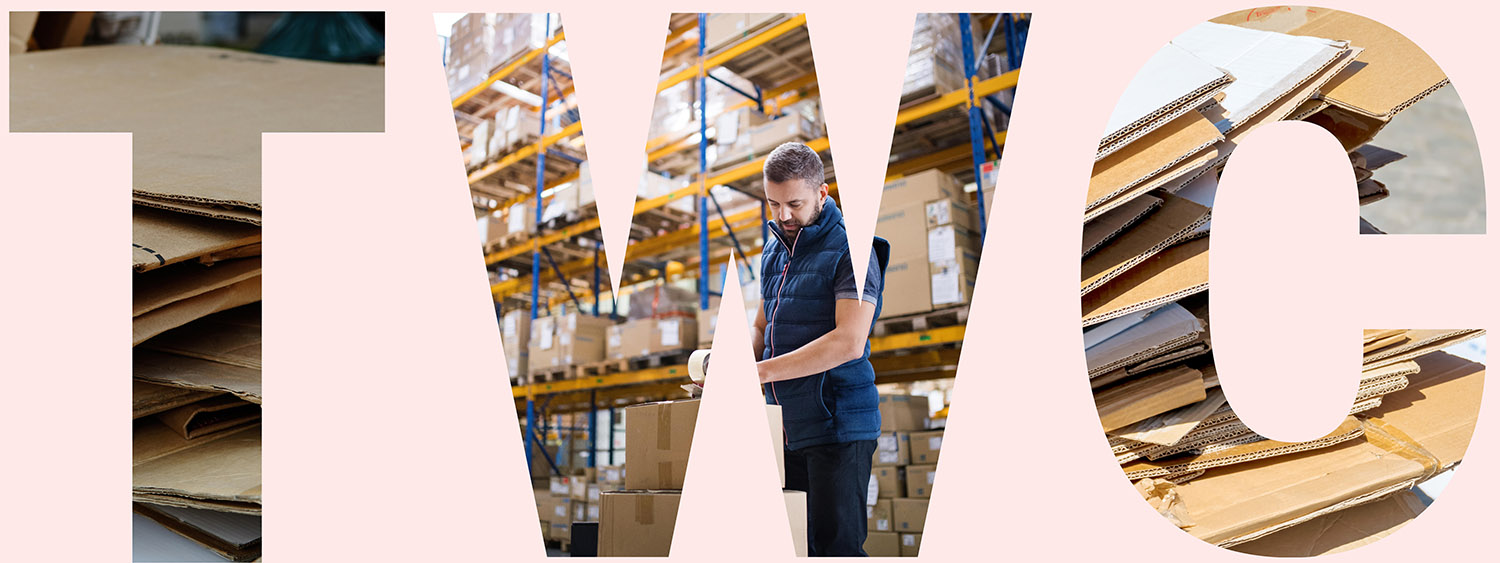
If you would like to drop us off a box, please get in touch. We would love to hear from you!
This first step led quite organically into how we could continue to reduce our waste production. We had already started to reduce our (and our community’s) waste production by refusing to buy more packaging. We then looked at our office and our paper consumption. We have committed to moving towards a paper-free workspace. So, for example, when we have meetings, we take our laptops to make digital notes rather than paper and pens. And when we have to print something in the office, we also ask one another whether we need to. These small steps have made an immediate positive impact on our team. Whenever we do purchase paper, we source 100% Australian recycled paper.
The idea of reusing materials embraces the notion of materials being part of a circular economy. Put simply, an item (like a paper sheet) keeps getting reused repeatedly so that it avoids the waste pile. For example, we now reuse scrap sheets and create notebooks for staff to use. This idea has been so successful, and it means that we are reusing our office paper multiple times before it finally heads to the recycling bin.
Another perfect example of this is our Tyvek wristbands themselves. Our next blog will introduce our take-back programme; through this programme, when you return your used wristbands to us, they are broken down and remade into things like park benches and playground equipment.
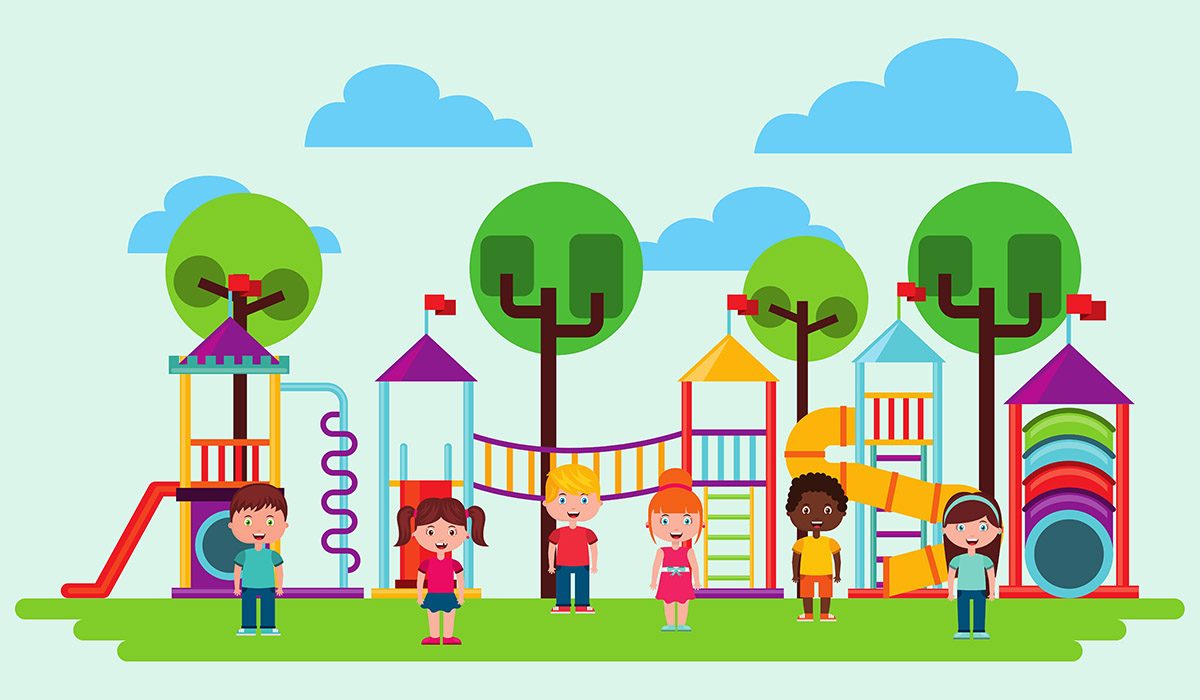
Another way we have been able to embrace reusing things is with our coffee, and we go through a lot here at The Wristband Co.! There isn’t anything our team enjoys more than a cup, and it would have taken the enjoyment out of our coffee’s if we knew that our beloved Nespresso machine was part of the problem. But we love it even more now because we can drop-off our used coffee capsules at our local Nespresso boutique here in Adelaide. Here they get processed and are reused time and time again. Want to do the same? Have a look for a drop-off location near you.
When we finally end up with material in the office that we can no longer reuse in some fashion, we make sure to recycle it. It might seem obvious, but having a clear and defined system helps everyone keep on the same path, for example, separate bins in the office for paper, printer cartridges, cardboard, wristbands and compost waste. An excellent service we have found is with Planet Ark, where we recycle our used printer cartridges.
Planet Ark makes our printer cartridges part of the circular economy by recycling them into new products such as garden beds, pens, artist ink and even new roads. By doing this, Planet Ark saves water, energy, greenhouse gasses and stops our cartridges ended up in a landfill.
We’re grateful that Planet Ark makes this so easy to do!
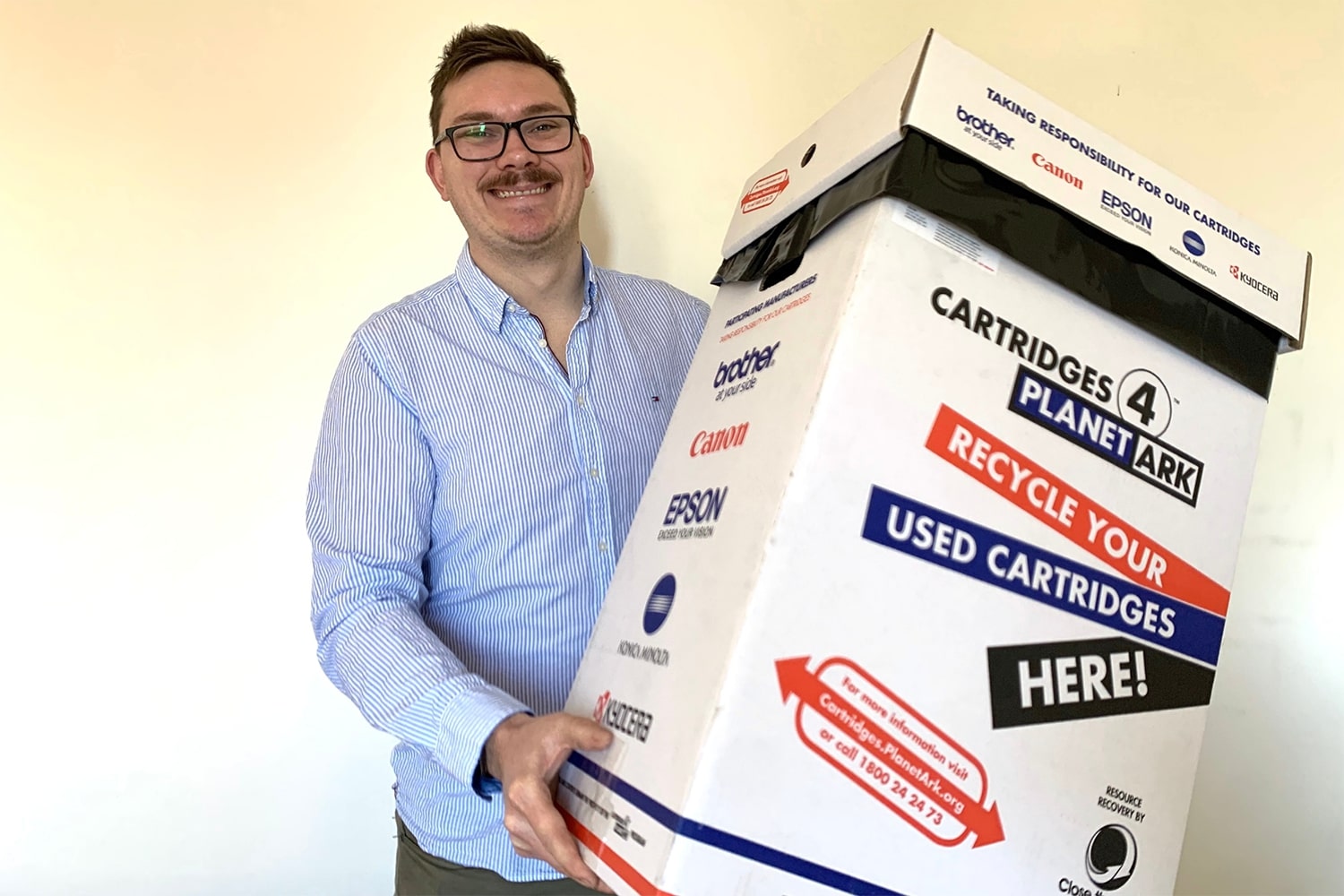
Co-Founder, Ben with our office Planet Ark Recycling Bin
Here are some examples of how we are using some of the more significant environmental and sustainability concepts at The Wristband Co. We have tried to create an open book policy to encourage our team and customers to be more environmentally conscious. After all, we relied on other people in our community to help us learn. Hopefully, by overcoming our fear of shame and writing this blog post, we will be able to connect with, educate, and inspire some of our readers.
We are still on our sustainable journey, and we know there is a long way to go, meaning we are always open to suggestions from our team, our customers and our community. If you have any ideas on improving our operations or would like to share your journey with us, get in touch today, we’d love to hear from you.


Join our mailing list to receive product information, endless inspiration and 10% off your next order!
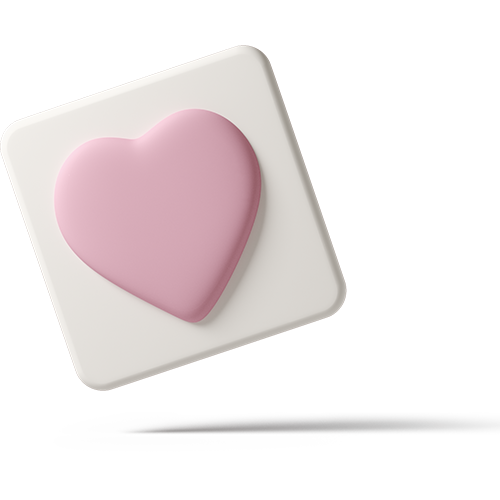
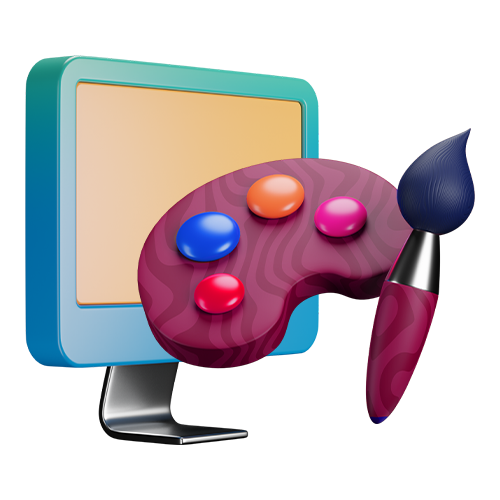
Monday – Friday 8:30 AM-8:30 PM
Saturday 10:00 AM-5:00 PM
Sunday CLOSED
38 Little Rundle Street Kent Town SA 5067
08 8363 4850
ABN: 62 239 772 879
The Wristband Co. is located on the traditional lands for the Kaurna people, and we respect their spiritual relationship with their Country. We also acknowledge the Kaurna people as the custodians of the Adelaide region and that their cultural and heritage beliefs are still as important to the living Kaurna people today.
Payments Accepted